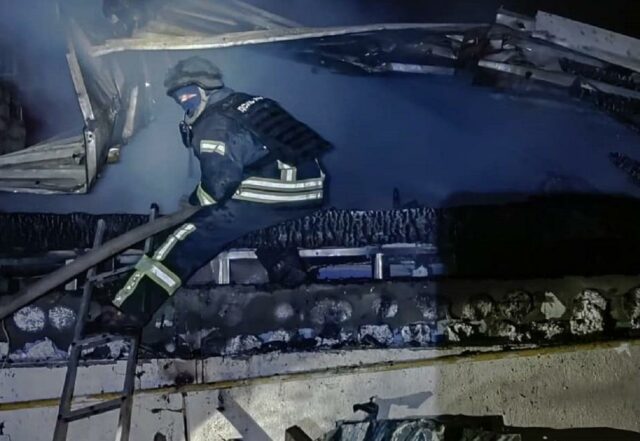Intensified Russian Attacks in Southern Ukraine: An Overview of the Current Situation
In the latest developments from southern Ukraine, the Russian military has executed a series of coordinated assaults primarily targeting civilian areas and vital infrastructure, notably in regions like Odesa and Kherson. These attacks have not only threatened the stability of these areas but have also raised significant concerns regarding the safety of local inhabitants. Oleg Kiper, the head of the Odesa regional military administration, has characterized these actions as perpetrated by «Russian terrorist forces.» Thankfully, reports indicate that no civilian casualties occurred, but the implications of these attacks are far-reaching.
The Odesa Response: Investigation and Accountability
In the aftermath of these military actions, the Odesa regional prosecutor’s office has indicated that they are launching a thorough criminal investigation focused on potential violations of international law and the laws of war. Under Article 438 of Ukraine’s Criminal Code, these evaluations are essential for accountability and justice. The prosecutor’s efforts are being coordinated by the office located in the Bilhorod-Dnistrovskyi district, which underscores the seriousness of the situation.
Such investigations are crucial, not only for holding perpetrators accountable but also for documenting violations that can be presented on an international platform. Statistics show that in conflict zones, accountability mechanisms can significantly impact long-term peace initiatives. According to research by the International Justice Resource Center, countries that pursue justice for war crimes tend to experience more stable post-conflict recovery. This adds urgency to the Odesa prosecutor’s efforts.
Kherson Under Fire: The Impact on Civilian Life
Meanwhile, in Kherson, the situation remains equally dire. Reports from the National Police indicate that Russian forces have increasingly targeted residential neighborhoods, specifically resulting in a fire at an apartment building roof due to shelling. Firefighters struggled to extinguish the blaze, compounded by ongoing military activity in the area, demonstrating the perilous conditions first responders face. An injured individual was located and rushed to receive medical care, highlighting the human cost of these relentless attacks.
According to Alexander Prokudin, the head of the Kherson regional military administration, the use of heavy artillery in the Dnipro district resulted in significant damage to both private homes and multi-family apartment complexes. This escalation of violence places immense pressure on already strained emergency services and local resources, as the community tries to maintain normalcy amid chaos.
The Urgency of Protection and Assistance
Authorities in southern Ukraine are emphasizing the critical need for protective measures to ensure civilian safety. Local governments, along with national law enforcement agencies, are mobilizing to respond to these threats. As individuals grapple with uncertainty and fear for their families, the need for immediate humanitarian aid and psychological support has never been clearer.
- Community Support Initiatives: Local organizations are stepping up to provide comfort and assistance to affected families, showcasing the resilience and solidarity of the Ukrainian people.
- Preparedness Training: Residents are encouraged to participate in training on how to respond during air raids, increasing community readiness and safety awareness.
- Resource Centers: Establishing centers for information and aid distribution can help alleviate some of the pressures faced by civilians during these turbulent times.
As the situation continues to develop, the focus remains on protecting civilians and restoring order in this volatile region. The ongoing military actions serve as a stark reminder of the fragile security landscape in southern Ukraine. Together, these stories highlight not only the resilience of its people but also the critical need for international attention and action to support those caught in the crossfire of conflict.





